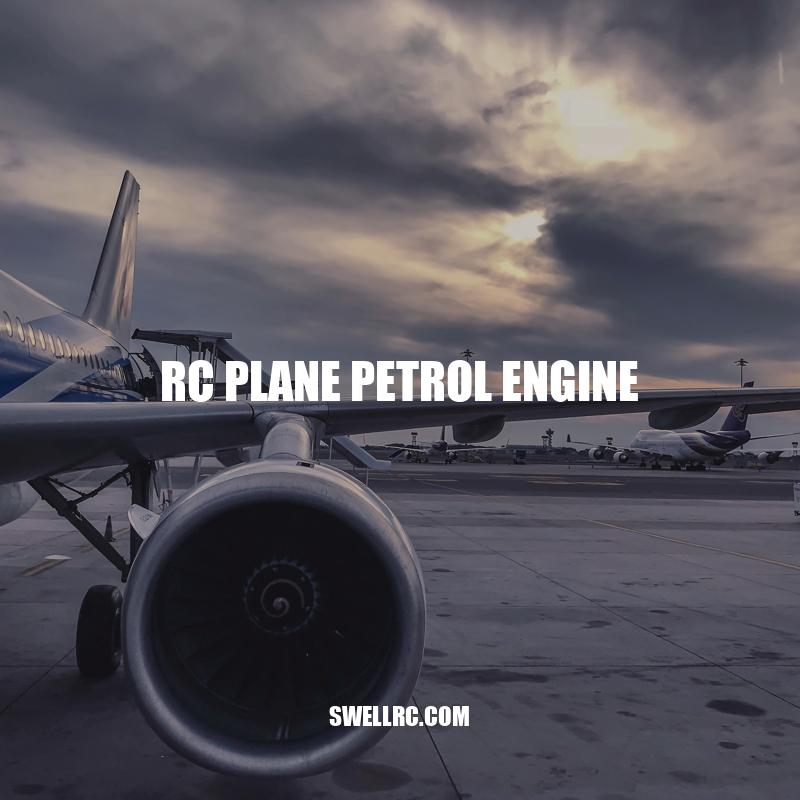RC Plane Petrol Engine: Characteristics, Working Mechanism, and Future Trends
An rc plane petrol engine, also known as a gas engine, is a type of internal combustion engine used to power remote control planes. Unlike electric motors that rely on battery power or nitro engines that use a combination of methanol, oil, and nitromethane, petrol engines run on gasoline, which is widely available and more cost-effective. Rc plane petrol engines come in different shapes and sizes, from small displacement engines suitable for beginner planes to larger engines capable of providing high power output for advanced rc planes. Overall, petrol engines remain popular among hobbyists and professionals for their engine reliability, increased run times, and easy maintenance.
Choosing the Perfect RC Plane Petrol Engine
Selecting the right petrol engine for an rc plane depends on several factors such as the plane’s size, weight, power requirements, and personal preferences. One way to find the right engine is to conduct research online about different brands, specifications, and customer reviews. Several websites offer a wide range of rc plane petrol engines, including Horizon Hobby, Tower Hobbies, and Motion RC. Some websites even allow customers to compare and filter engines based on specific criteria, such as power output, engine size, or price range.
Different types of petrol engines used in rc planes include:
- Two-stroke engines: These engines have a simple design, lightweight, and produce high power output but require more fuel and need to be regularly maintained.
- Four-stroke engines: They are heavier and more complex than two-stroke engines, but they are more fuel-efficient and have a quieter running operation.
- Glow engines: These engines are a type of two-stroke engine that uses a glow plug to ignite the fuel mixture, making them easier to start and more reliable in colder weather conditions.
- Spark-ignition engines: They are a type of four-stroke engine that uses an electronic ignition system to ignite the fuel mixture instead of a glow plug.
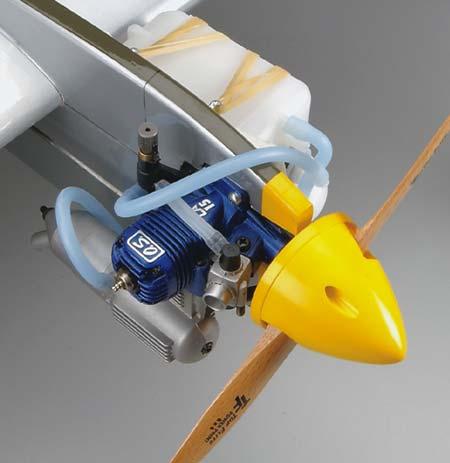
What are the different types of petrol engines used in rc planes?
The different types of petrol engines used in RC planes are 2-stroke and 4-stroke engines.
Maintaining Your RC Plane Petrol Engine: Tips and Tricks
Working mechanism of an rc plane petrol engine:
- An rc plane petrol engine operates through a four-stroke cycle that includes:
- The fuel delivery system in an rc plane petrol engine may include:
- A fuel tank that stores the gasoline and oil mixture.
- A carburetor that mixes the fuel and air before delivering it to the engine.
- A fuel pump that supplies the fuel from the tank to the carburetor.
- Compared to two-stroke engines, four-stroke engines have a more complex but more efficient operation, producing less noise and fewer emissions.
- Glow engines produce an orange glow during operation due to the heated glow plug, making them easy to identify during flights.
| Stroke | Description |
|---|---|
| Intake: | The piston moves down, allowing the fuel-air mixture to enter the combustion chamber. |
| Compression: | The piston moves up, compressing the fuel-air mixture to prepare for ignition. |
| Power: | The fuel mixture ignites, pushing the piston down, which rotates the crankshaft and powers the propeller. |
| Exhaust: | The piston moves up again, pushing the exhaust gases out of the combustion chamber and through the muffler. |
Rc plane petrol engines require regular maintenance to ensure their smooth and consistent operation. One website that offers a range of spare parts and accessories for rc plane petrol engines is RC Superstore. They offer parts for popular engine brands such as DLE, EME, and Evolution. Additionally, they provide video tutorials and instruction manuals for maintaining and troubleshooting common engine issues. Proper maintenance includes regular cleaning, checking the spark plugs and carburetor settings, and replacing worn out parts such as bearings and muffle.
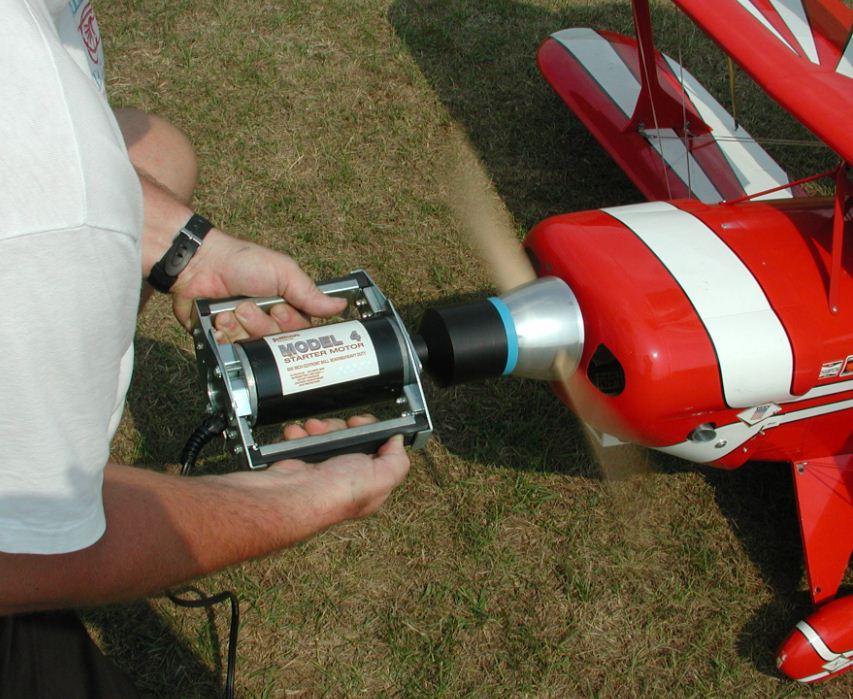
What is the recommended maintenance for rc plane petrol engines and where can you find spare parts and tutorials for maintenance?
Regular maintenance for RC plane petrol engines includes oil changes, air filter cleaning, and spark plug replacement. Spare parts and maintenance tutorials can be found online through RC hobby shops and manufacturers’ websites.
Tips for Maintaining Your RC Plane Petrol Engine
Maintenance and care for rc plane petrol engines:
- Keeping an rc plane petrol engine in good condition requires the following:
- Regular cleaning of the engine components, including the carburetor and air filter, to remove dirt and debris buildup.
- Using high-quality fuel that is specially formulated for rc plane petrol engines and includes the right amount of oil for lubrication
- Checking the spark plugs regularly to ensure they are clean and properly functioning, and replacing them if necessary.
- Inspecting the fuel lines for any leaks, cracks or wear, and replacing them immediately if required.
- Adding lubricant to the engine for better performance and protection against wear and tear.
- Common issues that may occur with rc plane petrol engines include:
- Flooding of the engine due to excessive fuel or poor carburetor settings.
- Ignition problems, including weak spark or no spark, caused by a malfunctioning ignition system.
- Overheating of the engine caused by insufficient cooling or poor fuel-air mixture.
- One of the most important aspects of maintaining an rc plane petrol engine is regularly inspecting the engine and its components to ensure that it is in good working order and free of any defects that could cause damage or accidents during flights.
- There are many online resources available that provide tips and advice on how to keep rc plane petrol engines in great condition. Some sites even offer online forums where users can share their experiences and ask questions about maintenance and troubleshooting. Sites like RC Groups, RC Universe and Aero-Model are examples of such online communities.
Proper maintenance of an rc plane petrol engine can significantly impact its performance and longevity. Products like power tuning fuel additives and engines with a high output compression ratio can deliver significant power gains. HobbyKing is a website that offers a range of tuning parts and upgrades for rc plane petrol engines that include high-performance carburetors, glow plugs, and fuel lines. They offer worldwide shipping, and their products are competitively priced, making them an excellent option for rc plane enthusiasts.
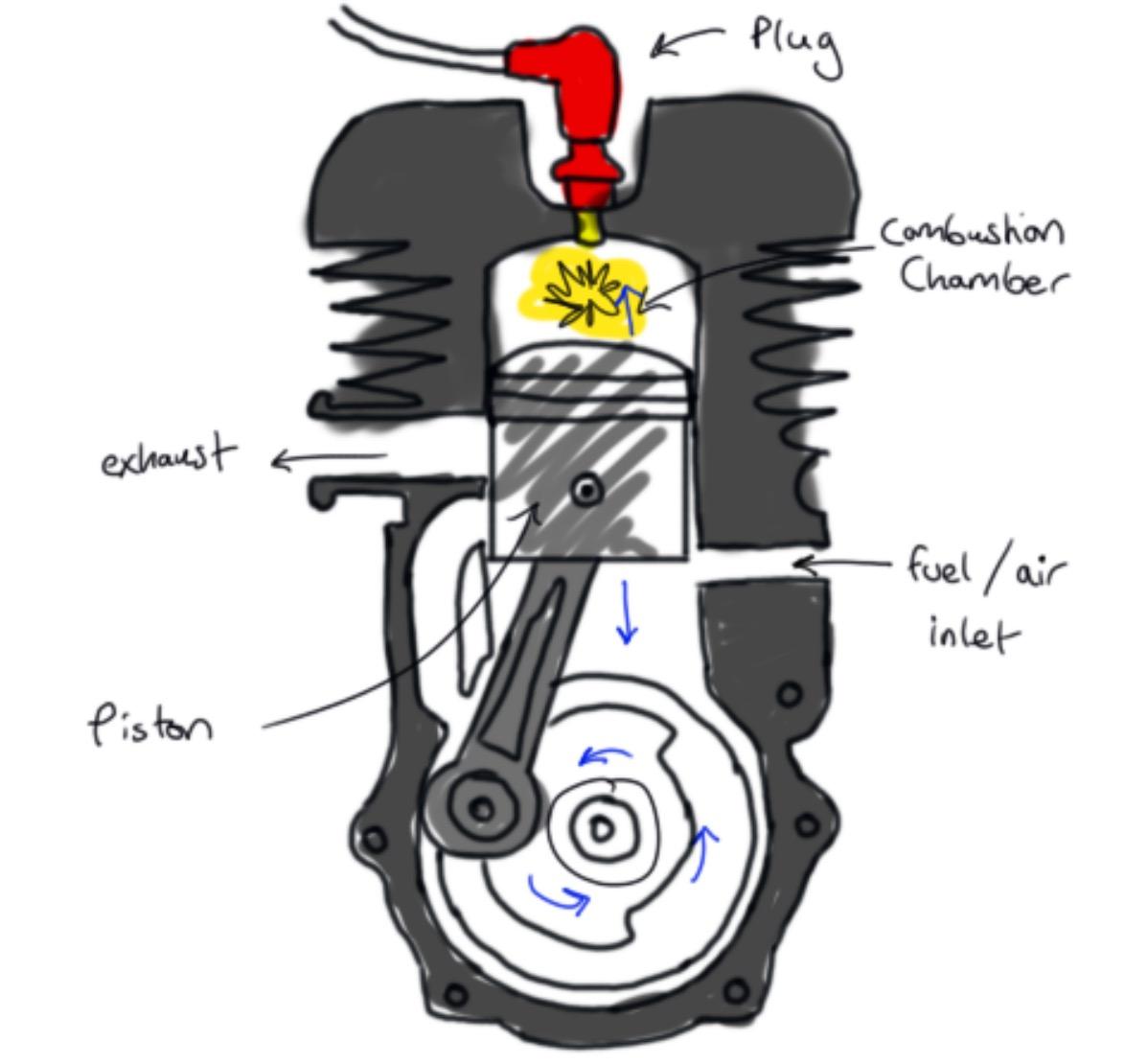
What are common issues that may occur with rc plane petrol engines?
Common issues that may occur with RC plane petrol engines include spark plug fouling, carburetor issues, fuel line blockages, and overheating.
Advantages & Uses of RC Plane Petrol Engines
Rc plane petrol engines offer unique advantages and uses that set them apart from other types of engines, making them a popular choice among hobbyists and professionals alike. Products like high-performance fuel and high-output spark plugs can further enhance the power and efficiency of rc plane petrol engines. Websites like RC Aero Engines provide a broad range of petrol engines designed for rc planes. They have a wide variety of products, including petrol engines suitable for different types of rc planes.
Compared to electric engines, rc plane petrol engines offer the following advantages:
- Higher power output, making them suitable for bigger and heavier rc planes that require more power.
- Longer run times, as they don’t rely on batteries and can be refueled quickly.
- No need to recharge batteries, thus eliminating downtime between flights.
Compared to nitro engines, rc plane petrol engines offer the following benefits:
- Lower cost of fuel, making them more affordable in the long run.
- Less maintenance required, as they don’t require as much tuning and adjustment as nitro engines.
- A cleaner and less toxic fuel, as it doesn’t contain methanol or other harmful chemicals that are present in nitro fuel.
Real-life applications of rc plane petrol engines include:
- Remote sensing and mapping in agriculture, where they are used to collect data on crops and soil conditions.
- Aerial photography and videography, where they capture stunning and unique footage from the air.
- Flying competitions and acrobatics, where pilots perform various maneuvers and stunts using rc planes fitted with petrol engines.
Online retailers like Horizon Hobby and Tower Hobbies offer a wide variety of rc plane petrol engines, as well as related accessories like fuel tanks, glow plugs, and propellers. With their vast selection and competitive pricing, they are excellent options for rc enthusiasts of all levels.
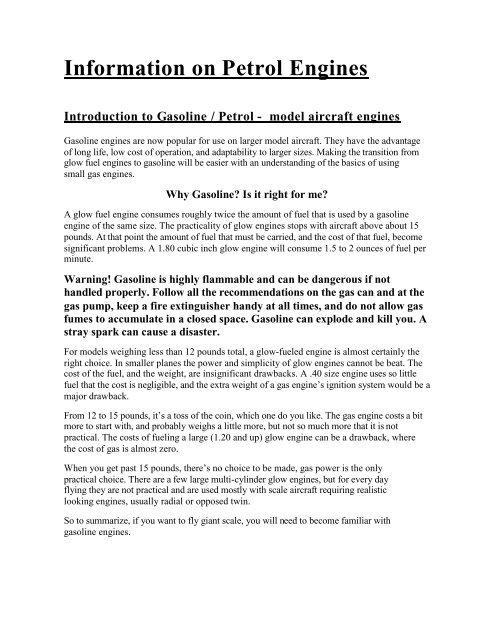
What are the real-life applications of rc plane petrol engines?
The real-life applications of RC plane petrol engines are mainly in the field of hobby and sports. They are used in remote-controlled aircraft for recreational and competitive flying, as well as for aerial photography and surveying.
Advancements and Challenges in RC Petrol Engines
Future of rc plane petrol engines:
- The future of rc plane petrol engines looks promising, with several significant innovations and advancements under development:
- New materials and manufacturing techniques that enable the construction of more durable and lightweight engines.
- Improved fuel injection systems that optimize fuel delivery and improve efficiency and performance.
- Advancements in digital technology that enable more precise tuning and adjustment of engines.
- Despite these advancements, there are also potential challenges and obstacles that need to be addressed:
- The increasing concern for the environmental impact of fossil fuels, which may lead to stricter regulations and higher costs for fuel.
- Competition from electric engines, which are becoming more powerful and efficient and reducing the gap in performance and run times with petrol engines.
- Increasing demand for autonomous drones and rc vehicles, which may require different types of engines and power sources.
- Despite these challenges, rc plane petrol engines will continue to play a vital role in the rc community and other industries that rely on them. Their versatility, ruggedness, and power output make them ideal for various applications, from agriculture and photography to racing and acrobatics.
- Rc enthusiasts can look forward to more advanced and powerful petrol engines, as well as new accessories and technologies that enhance their performance and efficiency. Websites like Hobbyking and Motion RC offer a broad selection of rc plane petrol engines, as well as other rc components and accessories.
As the technology behind rc plane petrol engines continues to evolve, there’s no doubt that they will continue to play an essential role in the rc world and beyond. New materials, technologies, and innovations are constantly being developed to improve the fuel efficiency, power output, and overall performance of petrol engines. Online retailers like Hobbyking and Motion RC can provide rc enthusiasts with the latest engines and accessories to improve the performance of their rc planes.
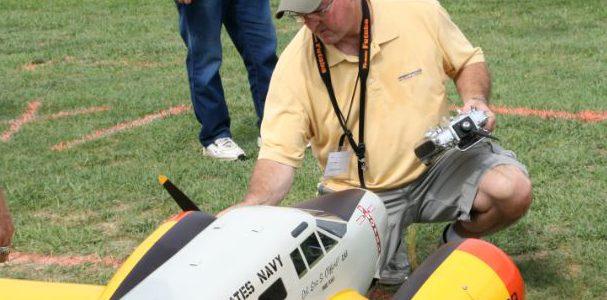
What challenges do rc plane petrol engines face with increasing concern for the environmental impact of fossil fuels and competition from electric engines?
RC plane petrol engines face challenges with increasing concern for the environmental impact of fossil fuels and competition from electric engines.
Conclusion:
In conclusion, rc plane petrol engines have been an integral part of the rc community for many years. These types of engines offer superior power, longer run times, and lower overall costs compared to other types of engines. In this article, we have covered the characteristics, working mechanism, maintenance, benefits, and future of rc plane petrol engines. We have seen that despite the competition from electric and nitro engines, petrol engines remain the go-to choice for hobbyists and professionals alike. Their versatility and power make them ideal for various rc applications, including racing, acrobatics, and aerial photography. In addition, websites like Hobbyking and Motion RC offer a broad range of petrol engine options, as well as other rc components and accessories. As technology continues to evolve, we can expect to see more advanced and efficient petrol engines, as well as innovative new approaches to powering rc planes. Overall, rc enthusiasts can look forward to a bright future for petrol engines in the rc community and beyond.

